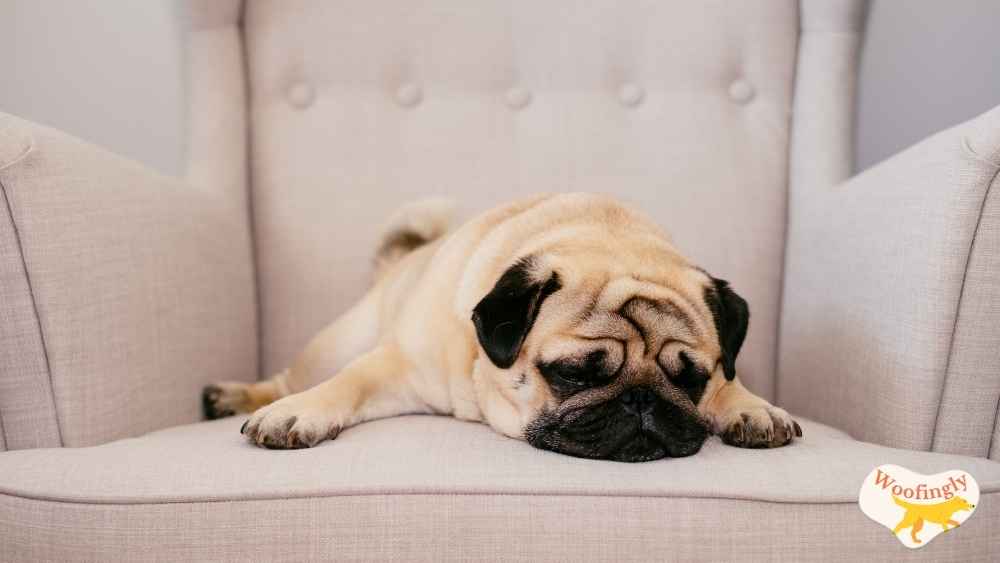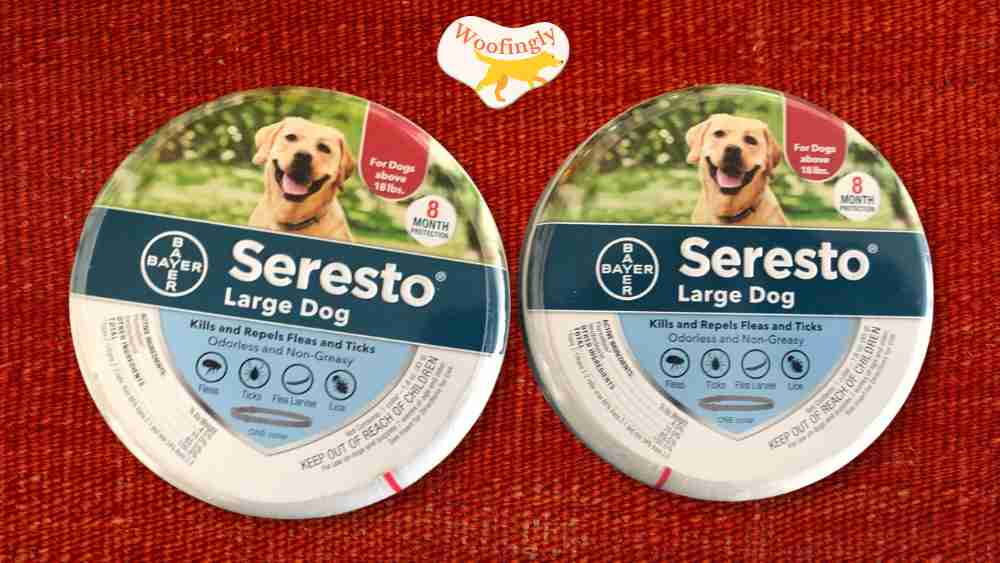If your dog spends more hours sleeping than playing or interacting, it can feel alarming at first. Many owners assume something is wrong, but in most cases, this is part of a dog’s natural rhythm.
As an experienced pet care writer, I can assure you that understanding canine sleep patterns is an important part of responsible ownership. The key is knowing how much do dogs sleep a day and recognizing when changes in rest might signal a problem.
Puppies may nap most of the day to support growth, while older dogs require extra downtime to recover from age-related fatigue. Breed, activity level, environment, and health also play significant roles in determining how much do dogs sleep a day.
In this article, I will guide you through average sleep requirements, influencing factors, and ways to promote healthy rest. You will also learn the signs that indicate your dog’s sleep pattern might need veterinary attention.
With the right knowledge, you can ensure your dog enjoys both adequate rest and an active, fulfilling lifestyle.
Factors That Affect a Dog’s Sleeping Hours
Age – Puppies and senior dogs generally sleep longer. Puppies may sleep 18–20 hours a day because their bodies are growing and their brains are developing. Senior dogs may also require extra rest to recharge.
Breed – Larger breeds like Saint Bernards, Mastiffs, and Great Danes tend to need more sleep than smaller breeds.
Activity Level – Highly active dogs such as working breeds may need more rest after an intense day, while less active dogs might sleep more out of boredom.
Health Condition – Illness, pain, or certain medical issues can cause dogs to sleep more than usual.
Environment – A quiet, comfortable, and safe space encourages quality sleep, while noisy surroundings may disrupt rest.
Average Sleeping Hours for Different Dogs
| Dog Type | Average Hours of Sleep Per Day |
|---|---|
| Puppies | 18–20 hours |
| Adult Active Dogs | 12–14 hours |
| Large Breed Adults | 14–16 hours |
| Senior Dogs | 16–18 hours |
These numbers are averages, and individual needs may vary. Observing your dog’s patterns is the best way to understand their normal rhythm.
Signs Your Dog Might Be Sleeping Too Much or Too Little
While understanding how much do dogs sleep a day is helpful, it’s equally important to notice when their habits change. Some warning signs include:
- Sleeping much longer than usual without increased activity beforehand
- Restlessness during the night or inability to settle down
- Excessive lethargy during their usual playtime
- Difficulty waking up or appearing disoriented
These could be symptoms of underlying health issues, and a veterinary check-up would be wise.
Balancing Sleep and Activity
Dogs need both adequate sleep and enough activity to stay healthy. If your dog is sleeping excessively during the day but not getting much exercise, they may be missing out on important stimulation. Aim to give them:
- Regular walks – Two to three daily walks can keep them active.
- Mental enrichment – Toys, puzzles, and training sessions keep their minds engaged.
- Playtime – Fetch, tug-of-war, and other games help burn off energy.
This balance helps maintain healthy sleeping patterns. Dogs that are physically and mentally satisfied are more likely to rest peacefully when it’s time to sleep.
Seasonal and Lifestyle Influences on Sleep
The weather and your household routine can also affect how much do dogs sleep a day. In colder months, dogs may curl up and rest more, while warmer weather may make them more active (or sometimes more tired, depending on heat levels).
Similarly, a busy household with lots of noise can disrupt rest, while a calm environment supports better sleep quality.
Travel, guests, or major changes in the home can also alter sleep patterns temporarily. It’s normal for dogs to adjust over time, but maintaining familiar routines can help them feel secure.
Quality of Sleep Matters
It’s not just about the total hours; quality sleep is essential for a dog’s health. Dogs need uninterrupted deep sleep for proper recovery and memory processing. Providing a supportive bed, a safe sleeping area, and a consistent bedtime can help improve sleep quality.
You might notice your dog twitching, paddling their legs, or making small noises during sleep. These are signs of REM sleep, the stage where dreaming occurs. This stage is crucial for mental health, just like in humans.
When to Consult a Vet
While small changes in sleeping patterns are normal, significant or sudden changes should be taken seriously. If your dog is suddenly sleeping far more or less than usual without a clear reason, it might be due to:
- Hypothyroidism.
- Pain or injury.
- Neurological conditions.
- Depression or anxiety.
- Infections or illnesses.
A veterinarian can perform tests to identify the cause and recommend a treatment plan.
Quick Tips to Support Healthy Sleep
- Keep a consistent daily routine for feeding, exercise, and bedtime.
- Make sure they have a comfortable sleeping area away from loud noises.
- Provide adequate exercise to ensure they are tired enough to sleep well.
- Limit stimulating activities right before bedtime.
FAQs
How many hours a day should my dog sleep?
Most adult dogs sleep between 12–14 hours a day, while puppies may need 18–20 hours. Senior dogs also require more rest. Factors like breed, activity level, and overall health can influence these numbers. Monitoring your dog’s normal patterns will help you identify if their sleep needs are being met or if something might require attention.
Is it normal for my dog to sleep all day?
It can be normal, especially for puppies, large breeds, or senior dogs. However, if your normally active dog suddenly starts sleeping significantly more without changes in activity or routine, it could indicate health issues such as illness, pain, or stress. If you’re unsure, consult your veterinarian for a check-up to rule out underlying problems.
Why does my dog sleep so much during the day?
Dogs often spread their rest throughout the day and night. They have shorter sleep cycles than humans, which is why they take multiple naps. Daytime sleep may also be influenced by boredom, age, health, or weather. Ensuring your dog has enough physical exercise and mental stimulation can help balance daytime napping with active play.
Do certain breeds need more sleep than others?
Yes, large breeds like Saint Bernards, Mastiffs, and Great Danes tend to sleep longer than smaller breeds. Working and highly active dogs may also require more rest after exercise. Breed-specific energy levels play a significant role in determining total daily sleep, so knowing your dog’s natural activity level can help you manage their rest effectively.
When should I worry about my dog’s sleeping habits?
You should be concerned if your dog’s sleeping patterns change suddenly, such as sleeping far more or less than usual, appearing lethargic, having difficulty waking up, or losing interest in normal activities. These changes could signal health issues. Prompt veterinary attention can help identify and treat any underlying conditions before they worsen.
Final Thoughts
Understanding how much do dogs sleep a day is essential for ensuring your pet’s overall health and happiness. While sleep needs vary depending on age, breed, and lifestyle, most dogs require far more rest than humans.
Puppies and senior dogs often sleep the most, while healthy adult dogs balance rest with activity. Observing your dog’s normal patterns will help you quickly notice any unusual changes.
Providing a comfortable sleeping environment, a consistent routine, and adequate exercise will support both the quality and quantity of their rest. Remember, sudden increases or decreases in sleep could signal an underlying health issue, so it’s always best to consult a veterinarian if you’re concerned.
By paying attention to your dog’s needs and promoting a healthy balance between activity and relaxation, you can make sure they thrive physically and emotionally—because knowing how much do dogs sleep a day helps you be a more attentive and caring owner.







Leave a Reply